Space
Sign up for our newsletter
We summarize the week's scientific breakthroughs every Thursday.
-
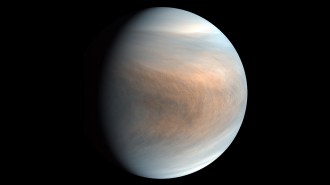 Space
SpacePhosphine gas found in Venus’ atmosphere may be ‘a possible sign of life’
Astronomers have detected a stinky, toxic gas in Venus’ clouds that could be a sign of life, or some strange unknown chemistry.
-
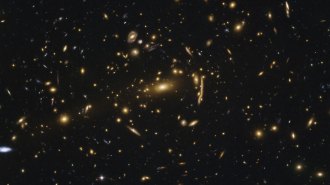 Space
SpaceDark matter clumps in galaxy clusters bend light surprisingly well
Cosmologists have found one more way to be confused by dark matter.
-
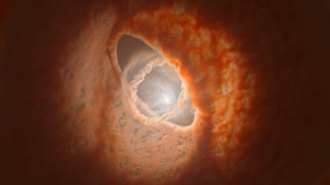 Space
SpaceA weirdly warped planet-forming disk circles a distant trio of stars
The bizarre geometry of a disk of gas and dust around three stars in the constellation Orion could be formed by “disk tearing” or a newborn planet.
-
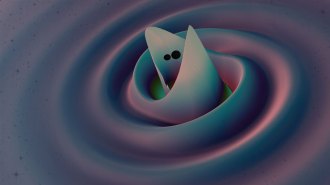 Physics
PhysicsRecord-breaking gravitational waves reveal that midsize black holes do exist
The biggest merger of two black holes so far raises questions about how the pair of objects came to be.
-
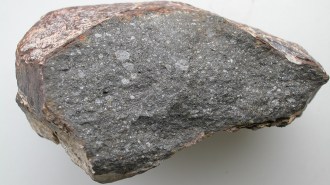 Planetary Science
Planetary ScienceEarth’s building blocks may have had far more water than previously thought
Space rocks and dust from the inner solar system could have delivered enough water to account for all the H2O in the planet’s mantle.
-
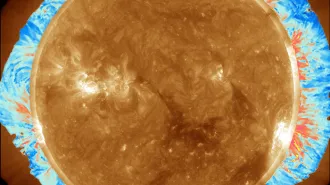 Astronomy
AstronomyCheck out the first-ever map of the solar corona’s magnetic field
Solar physicists watched waves in the sun’s corona to map the whole corona’s magnetic field. Future observers could use the same technique to predict solar eruptions.
-
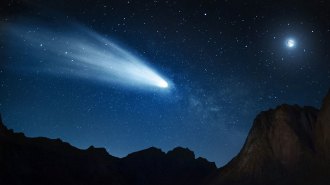 Astronomy
AstronomyIn a first, astronomers spotted a space rock turning into a comet
Scientists have caught a space rock in the act of shifting from a Kuiper Belt object to a comet. That process won’t be complete until 2063.
-
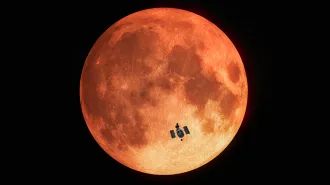 Astronomy
AstronomyHubble watched a lunar eclipse to see Earth from an alien’s perspective
Hubble observed sunlight filtering through Earth’s atmosphere during a lunar eclipse to see what a habitable exoplanet’s atmosphere might look like.
-
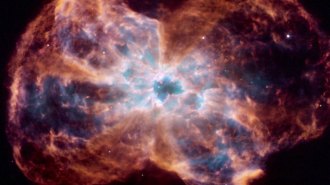 Space
SpaceParadoxically, white dwarf stars shrink as they gain mass
Observations of thousands of white dwarf stars have confirmed a decades-old theory about the relationship between their masses and sizes.
-
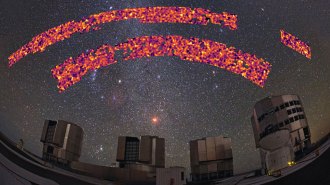 Cosmology
CosmologyScientists can’t agree on how clumpy the universe is
A measurement of 21 million galaxies finds a level of clumpiness that disagrees with estimates based on the oldest light in the universe.
-
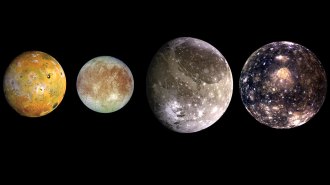 Planetary Science
Planetary ScienceJupiter’s moons could keep each other warm by raising tidal waves
Along with gravity from the enormous planet, tidal forces between Jupiter’s moons could generate a surprising amount of heat.
-
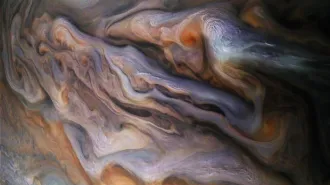 Space
Space‘Exotic’ lightning crackles across Jupiter’s cloud tops
Newly spotted lightning, which could form thanks to ammonia antifreeze, is weaker but more frequent than any flashes seen on Jupiter before.